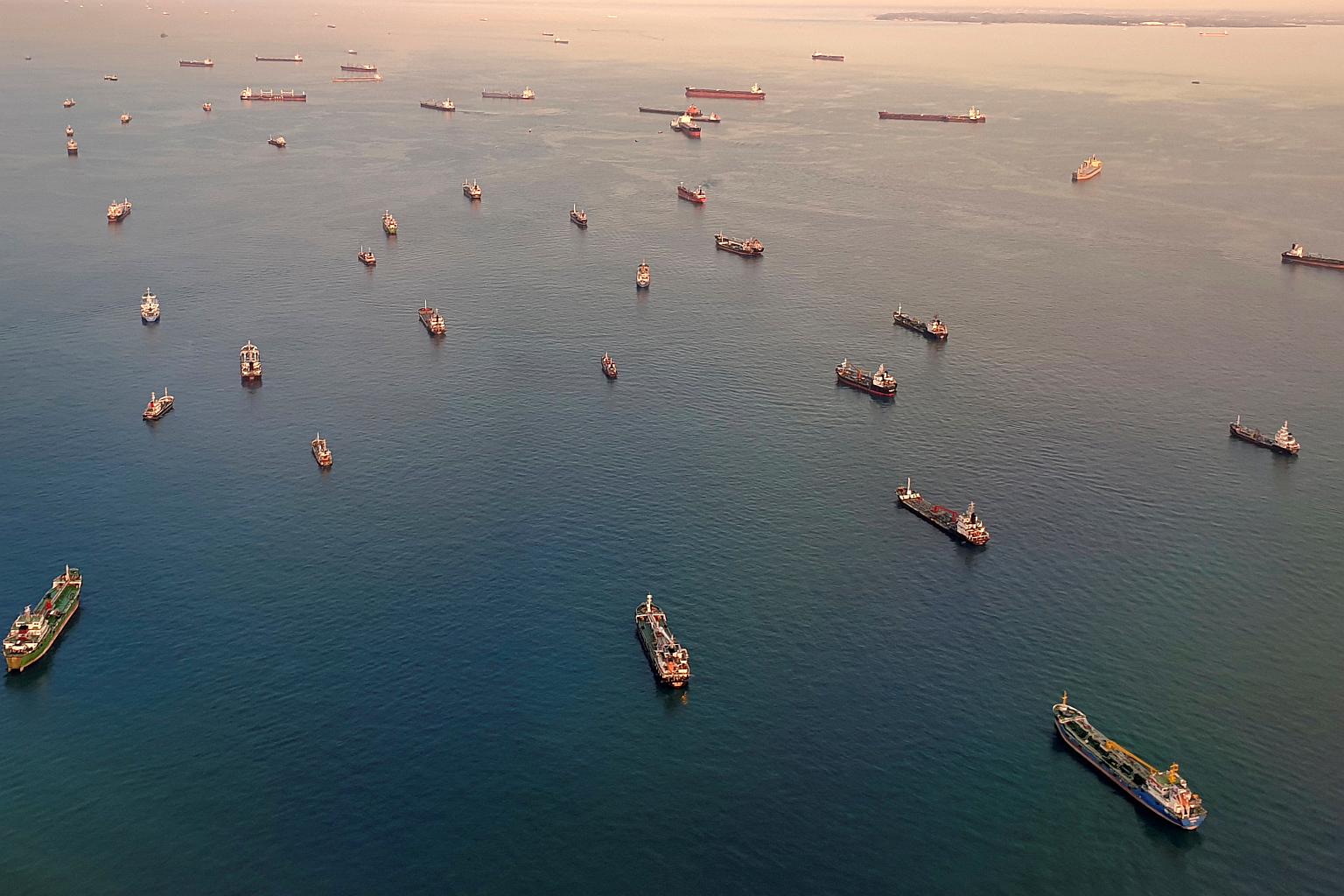World Cities Summit
Singapore and Rotterdam team up to push cleaner fuel, digitalisation on shipping route
Sign up now: Get ST's newsletters delivered to your inbox

A view of vessels in the Singapore Strait on April 3, 2019.
PHOTO: REUTERS
Follow topic:
SINGAPORE - Singapore and Rotterdam are working together to have vessels between the two cities run on cleaner fuel by 2027.
On Tuesday (Aug 2), the Maritime and Port Authority of Singapore (MPA) and the Port of Rotterdam signed a memorandum of understanding (MOU) to improve collaboration on sustainability and digitalisation.
In a joint media statement, the two port authorities said they will start trials for bunkering as well as digitalisation, and also test the use of low- and zero-carbon fuels on the 15,000km route.
On the sustainability front, the cities are striving to move away from marine gas oil and low-sulphur fuel oil - both popular within the shipping industry - to more sustainable alternatives such as biofuels and biogas.
Other alternatives such as synthetic methane, hydrogen and hydrogen-based fuels, including ammonia and methanol, are also being tested for future deployment, said the authorities, which noted that each alternative fuel faces challenges relating to cost, availability, safety and range restrictions.
To overcome these restrictions over the next few years, they will bring together shippers, fuel suppliers and other companies to devise potential solutions.
These partners include the Maersk McKinney Moller Centre for Zero-Carbon Shipping and the Global Centre for Maritime Decarbonisation, as well as industry partners across the supply chain.
As for digitalisation, the two port cities will be sharing relevant data, electronic documents and standards to facilitate movement of vessels and cargo, making the arrival of vessels at the respective ports a more seamless process.
The MOU signing at Marina Bay Sands between MPA chief executive Quah Ley Hoon and Port of Rotterdam chief executive Allard Castelein was witnessed by Transport Minister S. Iswaran and Mayor of Rotterdam Ahmed Aboutaleb.
Mr Iswaran said that ports cannot work in isolation on decarbonisation, as shipping is a network solution involving multiple partners.
He hopes the collaboration with Rotterdam will have a "catalytic effect" on others who trade with Singapore, in terms of spurring the adoption of greener shipping solutions.
Noting that the maritime sector has been "relatively conservative in approaching and addressing climate change challenges", Mr Castelein said the challenges are "so formidable" that entities have to collaborate to overcome them.

